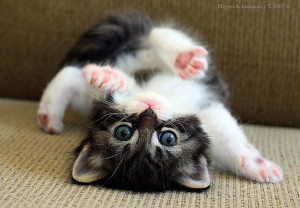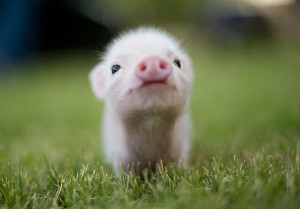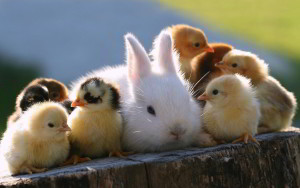
Call us Now ![]() +91-8744012053
+91-8744012053
Mon - Sat ~ 10:00 AM - 6:00 PM
Follow & Like
.png)


Call us Now ![]() +91-8744012053
+91-8744012053
Mon - Sat ~ 10:00 AM - 6:00 PM
Follow & Like
.png)


Who would have thought that saving a marriage was so simple? A latest study by a team of researchers from Florida State University has effectively concluded that showing cute images of cats, dogs, rabbits and other animals along with images of a person’s spouse leads to positive notions and feelings whenever one thought about his/her partner.

This study was lead by Dr. James McNulty and put together with an aim to help couples in a long distance relationship, especially spouses in military. Image – www.peaceucc.org
The research was carried on a sample group of 144 couples under the age of 40 years and married for less than 5 years. Forty percent of these couples were around 28 years of age and had children. The unconventional study is centered on the theory of classical conditioning that involves a learning process where two stimuli are repeatedly paired.

The conditioned stimulus is paired with and precedes the unconditioned stimulus until a response which is initially elicited by the unconditioned stimulus is elicited by the first stimulus alone. (www.cutestpaw.com)
Spouses were shown images of their partner paired with positive stimuli like cute puppy photos. However another set of people were shown images of their respective partners paired with a neutral stimuli.

The photos that were paired with positive stimuli succeeded in eliciting a positive attitude from the spouses. These natural responses lead to a greater marital satisfaction in due course of time as reported by this sample group. Image – www.boredpanda.com
McNulty explained that couples become happy versus unhappy in their relationship by associating certain emotions with their particular partner even though the partner wasn’t responsible for those emotions in the first place. Backed by these interesting findings it was seen how positive pictures and words have an impact so powerful that it can rekindle the lost love in marriages and add positivity to dull lives.

The research grant came from the Department of Defense to help married couples cope with tensions of separation and deployment. Image -www.boredpanda.com
The study included tests to measure relationship satisfaction and proceeded to record each person’s automatic reaction/feelings towards his/her partner. Each individual was shown photos of their husband/wife every three days paired with either a positive image or a neutral one and this process carried on for six weeks. Every two weeks, couples completed activities to analyze their attitudes towards their spouses for a total of eight weeks.

In conclusion, cute animals do have a potential to alter positively a person’s emotions towards his/her spouse. A Japanese study carried out in the year 2013 established that viewing images of animals increased productivity and improved mood in students. It isn’t wrong to say that animals are a positive force for humans in more than one way and offer favorable experiences. Image – http://www.uroubc.ca